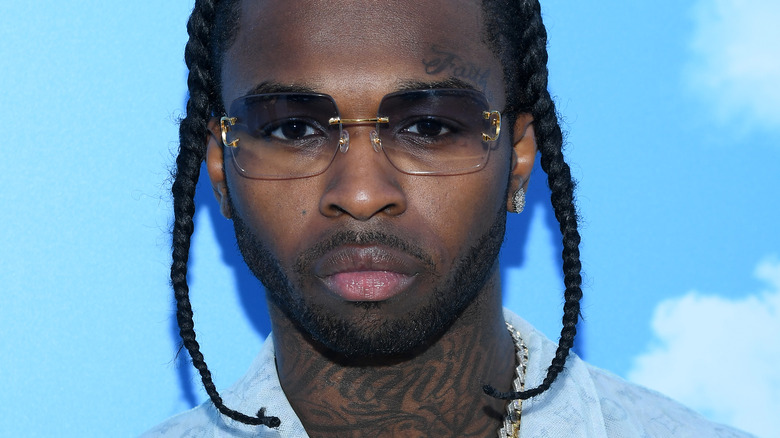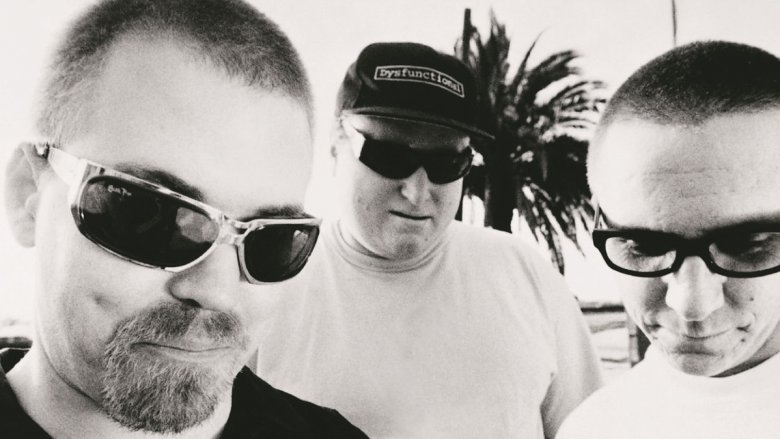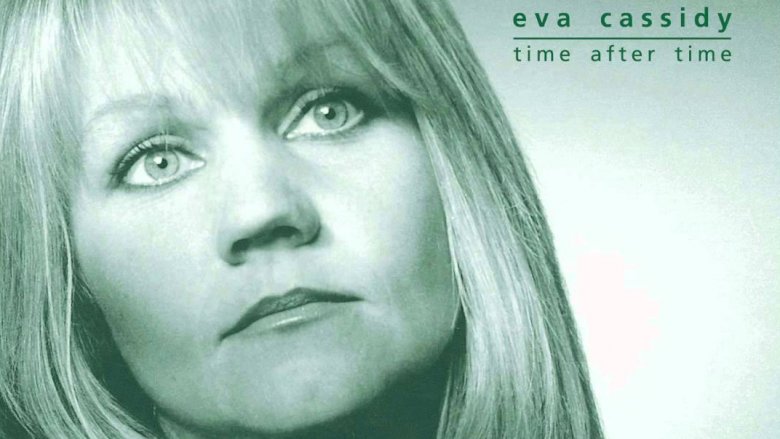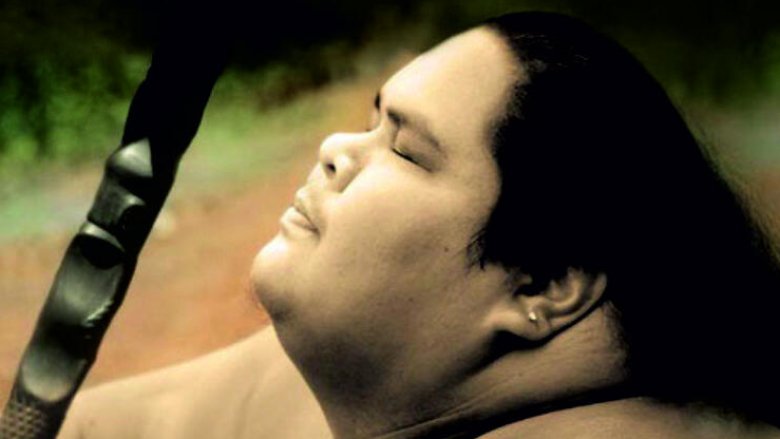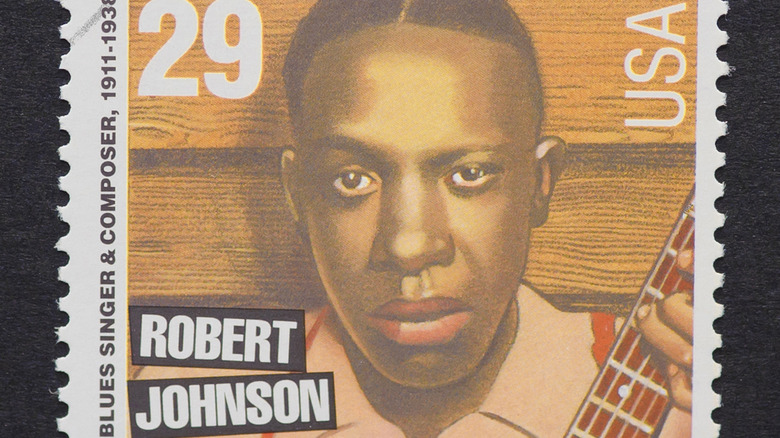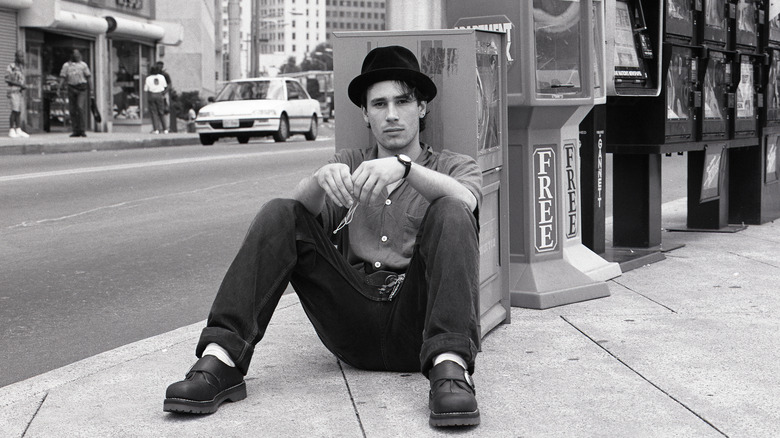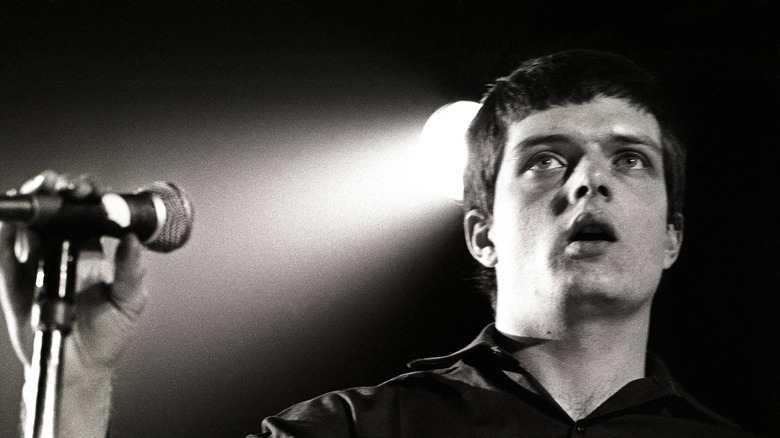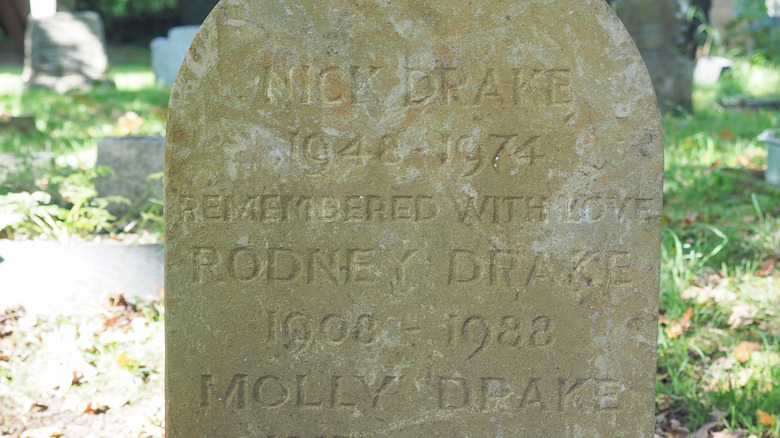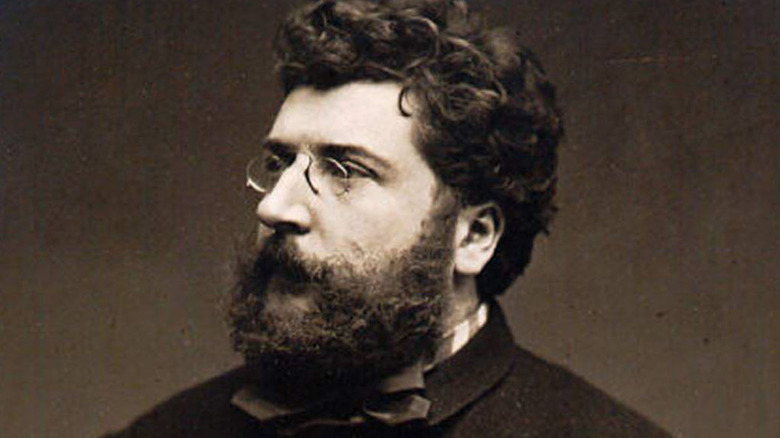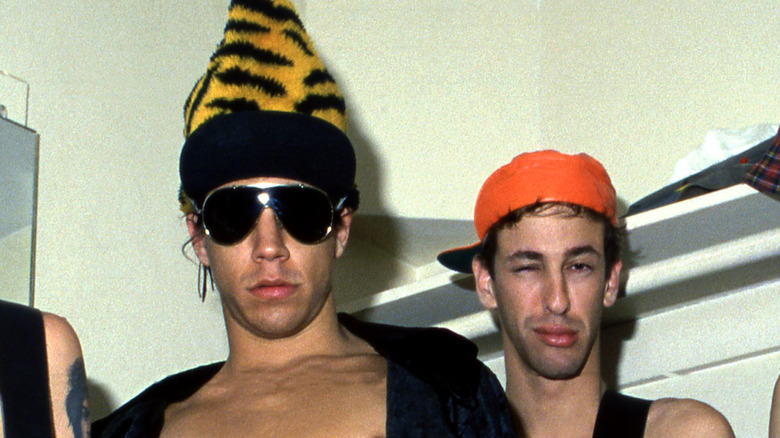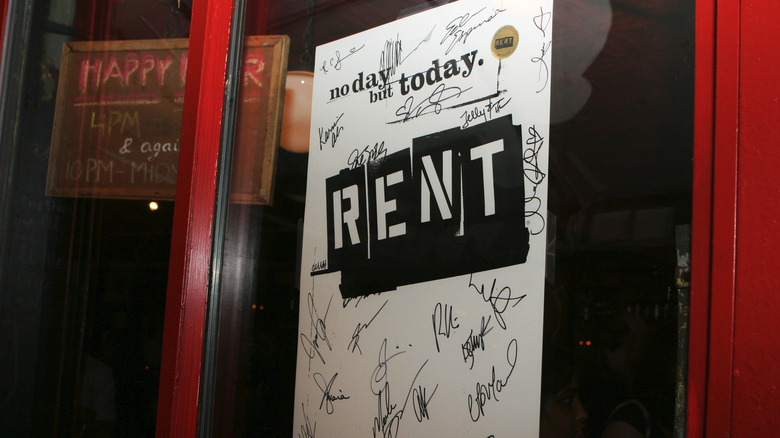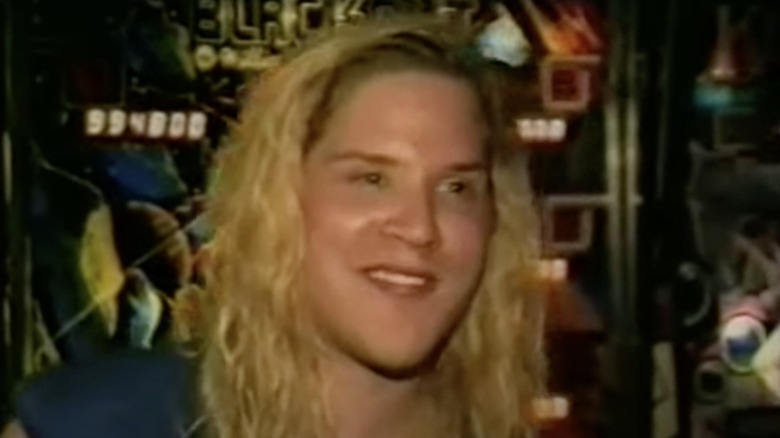Musicians Who Died Before Their Music Became Popular
If you've ever watched a rockumentary, you already know the dangers of being a rock star. Famous musicians tend to have short life expectancies. If you're a rock star who makes it to the age of 60 and you get to reminisce about all the crazy things you did that didn't end up killing you, there's clearly a rock star guardian angel out there somewhere who's looking after you. And if you make it to 35, you're still doing okay, considering.
But what if you don't even make it to the stardom part before walking down the same road as Janis Joplin, Jim Morrison, and Kurt Cobain? Well, that extra-sucks. Sometimes, stars who died too young don't even get to become stars until after they're gone, so there isn't even a consolation prize. At least Jim Morrison got to party a lot and hang out with Andy Warhol before making his way to the other kingdom. The musicians who died in obscurity were mostly just worried about paying rent and getting to the bus stop on time.
Bradley Nowell of Sublime
Bradley Nowell was the frontman for Sublime, a 1990s ska punk band. Nowell seemed pretty sure the band was going somewhere because he dropped out of California State University Long Beach just one semester before he obtained his degree so he could devote all his time to his music. At that point, the band had already achieved modest success — everyone in Southern California knew who they were, and they were sought-after entertainment for parties. By 1994 they were negotiating with MCA for an album deal.
For most of that time, Nowell was using heroin, which had started as experimentation and turned into a full-blown addiction. Nowell tried to get clean in February 1996, but he couldn't make it all the way through the recording sessions for their third album "Sublime," which would be their first major label release. He tried to get clean again for the birth of his child, but then he decided he deserved "a reward," and within a week he was addicted again.
Nowell died in a hotel room on May 25, 1996, after overestimating a dose of particularly potent heroin. It was seven days after he got married, 11 months after the birth of his child, and just under a year before the band's first No. 1 single.
If you or anyone you know needs help with addiction issues, help is available. Visit the Substance Abuse and Mental Health Services Administration website or contact SAMHSA's National Helpline at 1-800-662-HELP (4357).
Eva Cassidy
Eva Cassidy's album "Songbird" sold 5 million copies worldwide, reached six times platinum in England, and was certified platinum in the United States in 2008. By the time that happened, Cassidy had been dead for 12 years.
According to The New York Times, Eva Cassidy died without a record contract. Her cause of death was a malignant melanoma that spread to her lungs and her bones. The singer had the melanoma removed in 1993, but failed to follow up with her doctor in the months afterward. By 1996, she was experiencing pain in her hip. When she had it X-rayed, doctors learned the cancer had spread. She immediately started aggressive treatments, but it was too late. She died just two months later.
Cassidy gave her last performance less than a month before she died. She was bald from chemotherapy, her head covered in a black velvet cap, and she had to use a walker to get out on stage. Grab your tissues, because she sang "What a Wonderful World." Much of Cassidy's music was released posthumously, and she has since been recognized as "one of the greatest voices of her generation." Too late, of course, for a woman who always worked temporary jobs and lived in rented apartments.
Israel Kamakawiwo'ole
Israel Kamakawiwo'ole (also called Iz) was a sensation in his native Hawaii but didn't start to achieve worldwide recognition until the year of his death when his album "N Dis Life" made it onto the Top World Music chart and stayed there for 39 weeks.
Kamakawiwo'ole is probably most famous for his hauntingly beautiful rendition of "Somewhere Over the Rainbow," which was popularized in several movies and television shows and got a lot of play after his death in 1997. Several posthumous releases continued to grow his fan base — the 2001 album "Alone in IZ World" debuted at No. 1 on the Billboard World Music chart, and in 2005 his first album, "Facing Future," was certified platinum.
Like so many other musicians before him, Kamakawiwo'ole's vices ultimately led to his demise. According to ThoughtCo, Kamakawiwo'ole was morbidly obese for his entire life, maxing out at more than 750 pounds. He ultimately died from respiratory failure associated with obesity.
Robert Johnson
Robert Johnson was such a brilliant blues performer that some people literally accused him of making a deal with the devil. If that was true, though, it really wasn't a very good deal because he died at the age of 27, without experiencing any real success during his lifetime. Before that happened, Johnson was making a living as a traveling performer, booking any gig he could find, mostly playing the same 29 songs he had written and recorded between 1936 and 1937.
The deal-with-the-devil thing isn't just a quip — one of Johnson's contemporaries claimed he'd actually been a less-than-talented guitarist until he took a trip to Clarksdale, Mississippi, and sold his soul at the crossroads of Highways 49 and 61. When he returned a few weeks later, he'd been transformed into an amazing guitarist. A few weeks of guitar lessons seems more plausible than striking a deal with supernatural forces, but the devil-deal is significantly cooler.
Johnson died in 1938, and although there's never been a definitive cause of death, it's likely he was poisoned. It wasn't until a couple of decades later, when his work was reissued, that he finally achieved the fame he'd supposedly sold his soul to achieve.
Jeff Buckley
Murder, suicide, and overdose seem to be the dominant causes of death for musicians who died young, but occasionally we also hear about artists who died just doing risky things. That was the case for Jeff Buckley, who drowned in the Mississippi River.
Buckley is probably best known for his cover of Leonard Cohen's "Hallelujah," and what Biography called a "distinct multioctave voice." He released his first studio album, "Grace," in the summer of 1994. Buckley and his band toured for three years after that, and as a result, the album had some moderate success with fans and critics. By 1996 he was working on his second album, but en route to the recording studio one evening in May 1997, Buckley and his friend inexplicably took a detour to the Wolf River channel of the Mississippi River. Buckley got out of the car and jumped into the water, fully clothed.
If you've ever fallen into water in your clothing, you know how quickly you become waterlogged and how difficult it is to actually swim. Buckley's dip turned out to be fatal — a passing motorboat sucked him into its wake and he never resurfaced. His body was found six days later by a passenger on a boat.
Six years after that, "Grace" was named one of Rolling Stone's "500 Greatest Albums of All Time."
Ian Curtis of Joy Division
Sometimes the death of an artist marks not just the end of a creative mind but the beginning of a morbid legend. Suicides in particular are susceptible to turning a victim into a bizarre sort of hero — after the death of Kurt Cobain, fans elevated him to a status of near godhood that he hadn't quite been able to reach before death. And after Joy Division's Ian Curtis died by suicide, he became a sort of prophet — The Independent described the public perception of his suicide as an elevation "into some sort of philosophical victory of life through death." The fact that he was the frontman of a popular goth band probably contributed somewhat to this legend, but the sad truth is that Ian Curtis' death was not a story of triumph over adversity, but a tragedy of a suffering young man who wasn't getting the help he needed, and a small child (his daughter) who was left without a father.
Curtis had epilepsy, and in the months after his death, bandmates remembered the profound negative impact the illness had on his state of mind and on his ability to perform. According to History, he died two days before Joy Division was supposed to embark on a U.S. tour. The band's second album was released just two months later, and the song "Love Will Tear Us Apart" reached the top 20 on Britain's charts.
If you or anyone you know is having suicidal thoughts, please call the National Suicide Prevention Lifeline by dialing 988 or by calling 1-800-273-TALK (8255).
Nick Drake
Folk singer Nick Drake was especially well remembered for his stage performances, but not in a good way. The Atlantic says those who saw him perform remember an awkward, nervous guy who seemed horribly uncomfortable and mumbled his way through his sets like someone who would really rather be anywhere but the stage. If there were ever an example of a person born before his time, Nick Drake was it. Take him off that stage and give him a trip forward in time and a YouTube channel and he'd have been a star.
Nick Drake was made for the internet, but he was born four decades too soon. He was basically a creative mind without an outlet — desperate to share his work with someone but too shy to do it. In his time and just afterward he had a small following, and critics generally acknowledged his talent. In 1972 one wrote, "The more you listen to Drake, the more compelling his music becomes — but all the time it hides from you. ... It could be that Nick Drake does not exist at all."
After he died from an overdose (it is debated whether it was intentional or accidental) in 1974, his work sat mostly stagnant until it was rediscovered, by of all people, Volkswagen marketers. The car company used the song "Pink Moon" in a commercial, and people who saw the commercial liked the song, and pretty soon Nick Drake was on the Billboard charts, 40 years after his death.
If you or anyone you know is having suicidal thoughts, please call the National Suicide Prevention Lifeline by dialing 988 or by calling 1-800-273-TALK (8255).
Georges Bizet
As it turns out, music could totally bomb back in the 19th century, too. Biography describes composer Georges Bizet as "moderately successful," apparently not successful enough to marry the daughter of his mentor but successful enough to not be living in poverty.
In 1873, Bizet was working on an opera called "Carmen," which was based on an 1845 novel of the same name. The project was somewhat risky for the time since the title character was a Roma girl who did offensive things like being provocative and making her own choices. The opera had an initial run of 45 performances, and it was hated by critics and audiences alike. All the seduction and thievery scandalized the polite society ladies, and critics said the opera was "immoral" and "superficial," probably mostly because they didn't want those polite society ladies to know they secretly enjoyed all the seduction and thievery. By the end of the opera's first run, the theater had to give tickets away because they couldn't convince anyone to buy them.
Just after opening night, Bizet became ill. By the 33rd performance of "Carmen" he'd had two heart attacks and died. Five months later, "Carmen" moved to Vienna, where the society ladies were evidently not quite so polite, and the critics felt differently about seduction and thievery. "Carmen" was a hit in Vienna, and it went on to become one of the most-performed operas in the world.
Hillel Slovak of the Red Hot Chili Peppers
Southern California high school friends Michael "Flea" Balzary (bass), Jack Irons (drums), and Hillel Slovak (guitar) formed a band in the late 1970s called Chain Reaction, later Anthym, and then What Is This? With the addition of singer Anthony Kiedis, and with lineup changes, the collective would evolve into the Red Hot Chili Peppers. Slovak helped author the Red Hot Chili Peppers' unique sound, a loud and melodic blend of funk and punk. During a brief hiatus, Slovak co-wrote songs for the group's self-titled 1984 debut, but would rejoin and dominate the sound of the next albums, 1985's "Freaky Styley" and 1987's "The Uplift Mofo Party Plan."
By June 1988, the Red Hot Chili Peppers hadn't sold a lot of records but the frenetic performers were a phenomenon on the L.A. live music scene. That's when Slovak, 26 years old at the time, was discovered deceased in his apartment in Hollywood. The cause of death was a heroin overdose. The Chili Peppers would find massive and lasting commercial success without Slovak. The 1989 album "Mother's Milk" would be the group's first to appear in the upper rungs of Billboard's album chart, and it would go on to be the first of eight consecutive platinum (at least) LPs. Slovak's guitar work and vocals can be heard on one "Mother's Milk" track, a cover of Jimi Hendrix's "Fire."
Pop Smoke
According to The New York Times, Brooklyn-based "drill" — a rap sub-genre in which performers marry menacing beats with audacious and thought-provoking lyrics about harsh street life — began its rise to prominence in 2019, thanks in large part to Pop Smoke. Born Bashar Jackson, Pop Smoke's first release, "Meet the Woo, V.1 Mixtape" brought critical and industry attention, and within months he was working with the likes of Travis Scott and Nicki Minaj. In February 2020, "Meet the Woo 2" opened at No. 7 on the Billboard album chart, suggesting a lot of hit singles and a long career were on the way for Pop Smoke.
Mere days later, in the early morning hours of February 19, 2020, two masked men entered the Hollywood Hills home where Pop Smoke was staying, shot the rapper, and ran off. Medical personnel transported the fatally wounded rapper to Cedars-Sinai Medical Center, where doctors pronounced him dead. Pop Smoke was 20 years old.
The recordings both just released and left behind by Pop Smoke performed very well. In the six months after the rapper's death, six of his singles reached the Top 40 of the Billboard Hot 100 pop chart, including "For the Night," "What You Know Bout Love," "Mood Swings," and "Got It On Me." In 2021, "Dior" competed for a posthumous Grammy Award in the category of Best Rap Performance.
Jonathan Larson
In the late 20th century, not many Broadway musicals attained mainstream popularity. "Rent" was different." "Rent" won four Tony Awards (such as Best Musical) as well as the Pulitzer Prize for Drama, and the cast album sold two million copies. The show, the characters, and the songs (including the modern standard "Seasons of Love") resonated with audiences over its 12-year Broadway run, depicting the lives of a group of artists as they fell in and out of love and coped with HIV and AIDS in New York in the 1980s.
While there was a lot of sadness in "Rent," true-life tragedy struck off-stage. Jonathan Larson wrote the script, penned the lyrics, and composed the music for "Rent." It took Larson years. He started writing in 1990 and the first production was set for staging at the off-Broadway New York Theatre Workshop in January 1996. Less than a week before the premiere, Larson experienced severe chest pains, and a doctor diagnosed his ailment as food poisoning. Three days later, Larson attended the last dress rehearsal of "Rent." Hours after that, Larson's roommate discovered the composer on their kitchen floor, dead. An autopsy would show that Larson, 35, died of a torn artery, a result of an undiagnosed case of Marfan syndrome.
In April 1996, "Rent" would move to Broadway and begin its long, acclaimed run.
Andrew Wood
The Seattle-based "grunge" scene of the 1990s produced bands like Nirvana, Alice In Chains, Pearl Jam, and Soundgarden. That Seattle sound defined '90s rock, and one of the first major grunge releases was the 1991 self-titled album by Temple of the Dog, a one-off supergroup made up of members of Soundgarden, a rising act, and Pearl Jam, who'd issue their first LP a few months later. The album, which sold well and generated the hit single "Hunger Strike," was a tribute to the late Andrew Wood. Temple of the Dog's membership included Soundgarden singer Chris Cornell, Wood's roommate and close friend, who, until his death had been the lead singer of Seattle grunge band Mother Love Bone, which also included Temple of the Dog and Pearl Jam musicians Jeff Ament and Stone Gossard.
In March 1990, Wood died of a heroin overdose at the age of 24. Not only would he die before he could see the kind of music to which he'd devoted his professional life acquire global popularity, but he didn't even get to witness the release of his band's first album. "Apple" hit stores in July 1990, less than six months after Wood's passing.
